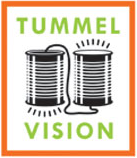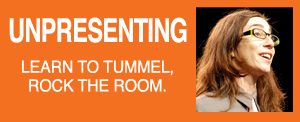All posts tagged technology
TummelVision 63: Mark Krynsky on X Prizes, competition, cooperation, and “influence”
Podcast: Play in new window | Download
Episode Notes
Mark Krynsky (@krynsky) of the X PRIZE Foundation & Lifestreamblog.com joins us to talk about competition, cooperation, and the folly of trying to measure online “influence.”
News and Notes:
- M.I.T. Media Lab Names a New Director – New York Times
- New Director of MIT Media Lab Talks of Encouraging Openness – Chronicle of Higher Education
- Peter Thiel Believes the Future Belongs to College Dropouts – The Atlantic
- A Customer Service Nightmare: Resolving Trademark and Personal Reputation in a Limited Name Space – Danah Boyd at Zephoria.org
- Bogus Infringement Takedowns And The Danger Of Relying On Third Party Services With No Backbone – Techdirt
- Zephoria Inc.: About to find out how social media really works – Suw Charman-Anderson
- Finding And Buying A Domain Name – Fred Wilson at AVC.com
- Invaders from Mars – Charlie Stross
- Books by Stross at Amazon
- Manifesto: I Am Not a Brand – Maureen Johnson
- Mark’s page at Empire Avenue (“Buy and sell your friends and own anyone on the social web!”)
- Klout is a Good Start But We Need More Ingredients for an Influencer Recipe – Mark Krynsky at Lifestream Blog
Some links and notes related to the X Prize Foundation and other aspects of Mark Krynsky’s work:
- Mark manages the X PRIZE Foundation websites & services.
- A collection of web services used at X PRIZE
- He has been writing about Lifestreaming for over 4 years, and he is currently focusing on social content readers and personal activity data (Lifelogging & Quantified Self)
- The Autonomous Auto X PRIZE
- Gold Rush 2.0: A Case Study of the GoldCorp Challenge – A.C. Preston
- The X Prize Visioneering Workshop
As you listen, you can replay the fascinating conversation from our live chat room here at CoveritLive.
TummelVision 59: Thomas Knoll on love, community architecture, Zappos, tech, and humanity
Podcast: Play in new window | Download
Episode Notes
Thomas Knoll joins Heather, Kevin, and Deb to talk about love, community architecture, Zappos, tech, and humanity.
TummelVision 57: Micah L. Sifry on SxSW, WikiLeaks, national security, and the global transparency movement
Podcast: Play in new window | Download
Episode Notes
Still a little hoarse from SxSW, Heather Gold, Kevin Marks, and Deb Schultz report on their experiences and are joined by guest Micah L. Sifry, co-founder of the Personal Democracy Forum, which covers the ways technology is changing politics, and editor of its blog techPresident. He is the author or editor of six books, most recently WikiLeaks and the Age of Transparency.
TummelVision 55: Juliette Powell on how to tummel, collaborating across disciplines, leaderless revolution, and Dutch schoolchildren
Podcast: Play in new window | Download
Episode Notes
The guest this week is Juliette Powell, media strategist, author of 33 Million People in the Room and co-founder of The Gathering Think Tank. Juliette is a natural-born Tummler who catalyzes ideas and people across business, media and culture.
Juliette and the gang offered some practical tummelling tips, discussed collaboration across disciplines, leaderless revolution, and the social dynamics Dutch schoolchildren (really).
Check out Juliette’s recent discussion on the impact of the social web on the Middle-East revolution[s] with Internet skeptic Evgeny Morozov on BBC’s WHYS blog. Bonus: She is a fellow Canadian along with Heather.
TummelVision 53: Molly Steenson on pneumatic tubes, the links between architecture and social software, and creating meaning without shipping code
Podcast: Play in new window | Download
Episode Notes
This week’s guest is Molly Steenson, a digital strategist, design researcher, architectural historian and Ph.D. candidate at Princeton University.
Molly joins Deb Schultz and Kevin Marks to discuss the implications of IBM’s Watson winning jeopardy, the hidden links between architecture and interface design, and whether “shipping code” is the only measure for creating value.
A few links we discussed in this episode:
- Don Norman, “I have seen the future and I am opposed” – walled gardens and over reliance on tech
- OM Malik, “Change Is Good, But It’s Also Really Hard”
- Ten Mindful Ways to Use Social Media– the human side of how to engage
- TummelVision Ep. 40 guest Dave Gray on Company as organism
- “The Meet Ben Fisher, The Hard Drinking, No Bullshit, Tech Fixer for SXSW” – Tummeling as job description
- TED Conversations launches: Sign of the increasing importance of Tummeling skills moving online
Molly’s work in her own words
“I’m writing about interactivity and its origins in architecture — human-computer interaction in architecture and urbanism. Right now, I’m focusing on Nicholas Negroponte, the founder of the MIT Media Lab. He was trained as an architect and then founded the Architecture Machine Group at MIT in 1968 (which later became the Media Lab in the 1980s). He tried to apply big ideas of artificial intelligence to architecture and urban planning. Think of Watson winning on Jeopardy — now imagine a Watson that could design cities and buildings in a close relationship with a person. That’s what Negroponte had in mind in the 60s and 70s. Obviously, the technology simply wasn’t advanced enough to do it — but the thinking was provocative and really interesting.The interesting thing to me is that figures like Negroponte, Christopher Alexander (who wrote A Pattern Language) and Richard Saul Wurman (who coined the term “information architecture and founded the TED conference) are all architects by training who had a major impact on our digital worlds. Alexander’s idea about patterns were important for object-oriented programming languages, not to mention for game and interface design. Wurman is one of the godfathers of contemporary information architecture. I wonder why these architects didn’t fit well into the field of architecture but mesh so well with the ways we design today for interactivity.
Outside of my academic work, I’m also interested in mobility, mobile phones and future-casting research. I’ve spent a summer in India researching how people share mobile phones — and as we look at sustainable ways of using objects, sharing gets to be important. I’m working on an amazing project with the Institute for the Future that I can’t talk about… I’ve looked at how friendship is changing in China and England thanks to social networking sites.”







